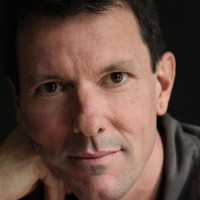Of the 100-plus speeches heard at the two political conventions over the past two weeks, at least one will be remembered 20 years from now. Bill Clinton's talk was an Olympian act even by Clinton standards. It was also the best illustration I know of what makes Clinton the unrivaled political orator of his age.
Back in the summer of 2001, I wrote a speech for former President Clinton. He was talking to a group that was desperate to hear tips on how to communicate. He disliked that kind of thing; he wanted to talk about substance. So I tried to weave the two together, and I included a passage on working with his speechwriters. He ignored what I wrote and said:
"My speechwriters worked for days to carve out these noble phrases, and sometimes I would say, 'This is just rhetoric; we're trying to talk to people here.'"
My colleague Jeff Shesol, who has spent more time working on Bill Clinton's convention speeches than anyone but Bill Clinton, once told an audience, "Anything that called attention to itself on a page was probably the first thing that was going to get cut ... and that consigned most of our sound bites to the dustbin of history."
Clinton didn't cut clever words and rhetoric because of a style preference. He cut them because they got in the way of talking to people.
About 10 years ago, Clinton ran into a reporter who said (this is how Clinton put it in a speech): "I've been keeping up with the talks you've been giving, and I think you're becoming our explainer-in-chief."
Of course, Clinton is not without ego. He wouldn't tell a crowd that someone called him "explainer-in-chief" unless he liked being called that. But it's helpful for us to know he likes the label, because it draws attention to what makes him stand out: his skill and passion for explaining things.
Explaining things isn't easy. You have to grasp complexity and convert it to simplicity. Clinton towered over others in this skill, especially the two candidates who vied to succeed him. George W. Bush could do simplicity, but he couldn't do complexity. Al Gore was brilliant with complexity, but he couldn't do simplicity. He always wanted to include one more corollary. If Gore could have done both, he'd have become president. The person who can best explain something is a person people want in charge.
Of course, as you explain things, you're embedding an argument in your explanation. That's why it's such a powerful tool.
You could see Clinton setting this up in his speech Wednesday night when he said of the Republicans:
"They convinced me they were honorable people who believed what they said and they're going to keep every commitment they've made. We just got to make sure the American people know what those commitments are."
(This follows the advice he gave some of us years ago about campaign speeches. He said a strong speech doesn't have to be mean; it just has to be clear. A lot of hot rhetoric sounds mean, he told us. But a clean argument doesn't.)
Then Clinton took the time and effort to explain the differences on the economy and jobs and energy and student loans and the new health care law and Medicare and Medicaid and the debt and tax cuts — explaining what's at stake, what the choices are and what the two parties believe.
He had some strong lines in the speech, such as "the job score: Republicans 24 million, Democrats 42 million," and when he said the Republican argument against Obama is, "We left him a total mess. He hasn't cleaned it up fast enough. So fire him, and put us back in."
But the line I liked best — and it's one you're not going to see in other people's speeches — came when he was talking about the Republican charge that President Barack Obama weakened work requirements for welfare. In the middle of his explanation, Clinton stopped and said:
"Wait. You need to know. Here's what happened. Nobody ever tells you what really happened. Here's what happened."
Bill Clinton writes his own rules of rhetoric. It would be hard to match his skill, but I'm astonished more people don't steal his model.
He's not talking to history; he's trying to reach the people in the room. If it's sometimes not so elegant, who cares? That's not the point.
We're trying to talk to people here.
Tom Rosshirt was a national security speechwriter for President Bill Clinton and a foreign affairs spokesman for Vice President Al Gore. Email him at tomrosshirt@gmail.com. To find out more about Tom Rosshirt and read features by other Creators Syndicate writers and cartoonists, visit the Creators Syndicate Web page at www.creators.com.






View Comments